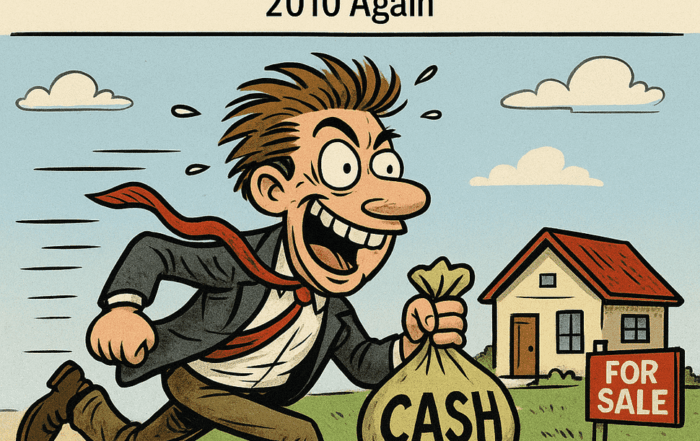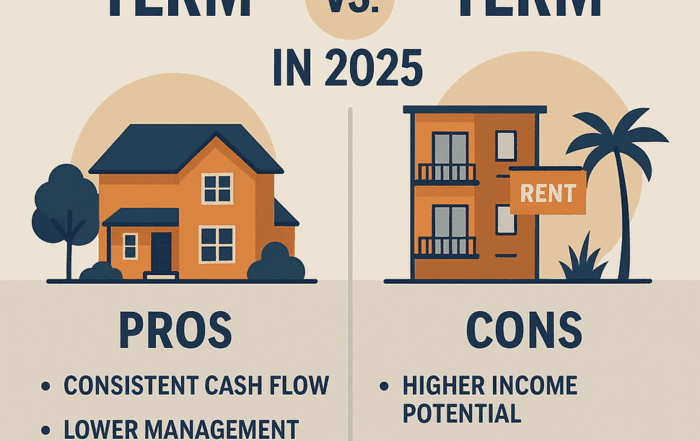Should You Ever Sell a Buy-and-Hold Property? Here’s the Real Answer
Introduction
Real estate’s a wild ride. One minute, you’re raking in rent, and the next, your cousin is asking if it’s time to cash out and buy Bitcoin. So here’s the truth: if you’re playing the buy-and-hold strategy — the long game — selling should be your last move. But if life throws a curveball (divorce, big debt, another hot opportunity), the timing of that sale matters a lot. Let’s break down when (if ever) it makes sense to sell… and what to do instead.
The Philosophy of Buy-and-Hold: Play the Long Game
-
Time Builds Wealth: Buy-and-hold isn’t flashy. It’s not “flip it fast.” It’s “buy, chill, and let the magic of time do its thing.” Appreciation + equity + rent = wealth. Simple.
-
Markets Bounce Back: Economic dips? Crashes? Pandemics? Real estate has seen it all. But the folks who held on through the tough times came out way ahead.
-
Peace of Mind: Rents may rise and fall, but if you’re in a solid neighborhood and have decent tenants, your cash flow keeps rolling in.
Current Market Conditions (Mid-2024)
-
Interest Rates: Up for now, but the Fed’s teasing cuts in early 2025. Translation? Buyers are waiting, and sellers need to time things smart.
-
Buyer Demand: It’s cooled slightly due to higher rates, but demand should rebound fast once borrowing gets cheaper.
-
Florida Snapshot:
-
Median Prices (YoY):
-
Inventory:
-
April 2023: 2.6 months
-
April 2024: 4.2 months
We’re heading toward a balanced market — not too hot, not too cold. Perfect for smart investors.
What to Expect in 2024
-
Zillow Says: 3.4% price growth for the year. Not insane, but still moving up.
-
Investor Tip: Don’t expect 20% appreciation anymore. Those party days are over. Think slow and steady.
So… Should You Sell in the Next 6 Months?
Only if you must. And if you do, aim for early 2025. Here’s why:
-
Lower Interest Rates = More Buyers
-
More Buyers = More Competition
-
More Competition = Higher Prices (or at least quicker sales)
But don’t just guess. Track trends. Watch the Fed, local MLS data, and buyer activity in your zip code.
Talk to People Who Know What They’re Doing
Seriously. Before you sell, chat with:
-
A good investor-savvy agent (hey, that’s us)
-
A smart CPA (capital gains are no joke)
-
Maybe your mentor or coach (someone who’s lived through 2008)
Tampa Spotlight: Why You Should NOT Sell Yet
I’ve been investing in Tampa for two decades, and here’s the scoop:
-
Tampa’s Booming: Construction cranes are everywhere. From Riverview to Wesley Chapel, there’s growth like never before.
-
Population Surge: Folks are moving in. Remote workers. Retirees. Investors. The demand is still strong.
-
Future Outlook: Tampa real estate is on track to climb through 2028 at least.
If you’ve got a Tampa property? Sit tight. Let it bake a little longer.
Then vs Now: The 2007 Bubble Was a Whole Different Beast
This isn’t 2008. We’re in a healthier, smarter market. So breathe.
Migration Trends Are Still Fueling Growth
People are still leaving cold cities and heading to warm, affordable Florida. This wave won’t stop overnight. In fact, it’s projected to run another 8–10 years.
That means:
Don’t Sell… Refi Instead
Need cash but don’t want the tax hit or to give up the asset? Try this:
-
Refinance: Pull equity out while keeping the golden goose.
-
Cash-Out: Use the funds to invest, fix up another property, or just boost reserves.
-
Better Terms Later: Refi again when rates drop — double win.
Thinking of Selling Anyway? Do It Right
If you must sell, make it count:
-
Fix it up: A little paint and curb appeal go a long way.
-
Price Smart: Not too high, not too low. Base it on comps, not ego.
-
Market Like a Pro: Photos, video, social — the works. Don’t cut corners.
Final Thoughts
If you’re playing the long game in real estate, selling should be rare. But when life demands it, your timing needs to be smart — not emotional. Watch the interest rates. Study the market. And when in doubt, refinance, don’t sell.
For Tampa and Central Florida? I’m holding tight. There’s still meat on the bone.
Keep it consistent, stay patient, stay true—if I did it, so can you. This is Jorge Vazquez, CEO of Graystone Investment Group and all our amazing companies, and Coach at Property Profit Academy. Thanks for tuning in—until the next article, take care and keep building!





